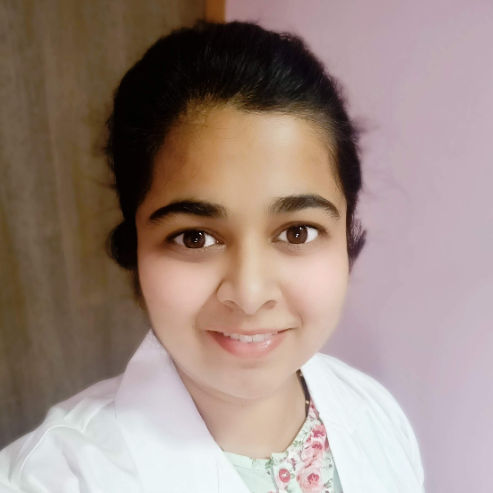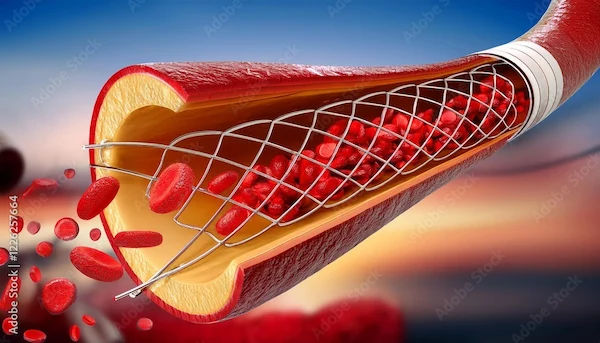Understanding Young Heart Attacks: Causes, Risks, and Prevention
Learn about the surprising risks and causes of heart attacks in young adults. Discover effective prevention strategies to protect your heart health, including diet, exercise, and lifestyle changes.

Written by Dr Sonia Bhatt
Last updated on 3rd Jul, 2025
Heart disease has long been associated with older individuals, but in recent years, the number of younger adults experiencing heart attacks has been rising. This shift in the age group of heart attack patients has raised concerns among both medical professionals and the public. Young heart attacks—those occurring in people under 45 years old—are becoming more common, and understanding the causes, risk factors, and prevention strategies is crucial for safeguarding your heart health. This article explores what young heart attacks are, why they happen, how to recognise the warning signs, and what you can do to protect yourself.
What Is a Young Heart Attack?
A heart attack, also known as a myocardial infarction (MI), occurs when the blood flow to part of the heart muscle is blocked. The heart muscle becomes starved of oxygen, which can lead to tissue damage or even death if not treated quickly.
In the past, heart attacks were primarily associated with older adults, especially those in their 60s, 70s, and beyond. However, an increasing number of people under 45 are now experiencing these life-threatening events.
This shift is alarming because younger adults are generally expected to have lower risks of heart disease due to their age, so a heart attack in this group is often unexpected and can be particularly devastating.
Who Is At Risk?
While heart attacks in younger individuals are less common, certain risk factors can significantly increase the likelihood of having one. Some of these factors are modifiable through lifestyle changes, while others may be inherited.
1. Lifestyle Factors
Certain habits and behaviours increase the risk of heart disease, regardless of age:
Smoking: Smoking damages blood vessels, raises blood pressure, and increases the risk of developing heart disease. It is one of the most preventable causes of young heart attacks.
Poor Diet: Diets high in unhealthy fats, salt, and sugar can lead to obesity, high cholesterol, and high blood pressure—all of which are risk factors for heart disease.
Lack of Physical Activity: Sedentary lifestyles contribute to obesity and other cardiovascular risk factors. Regular exercise helps keep the heart healthy.
Excessive Alcohol Consumption: Drinking too much alcohol can raise blood pressure and cause heart damage over time.
2. Pre-existing Medical Conditions
Certain medical conditions may increase the likelihood of a heart attack in younger people, including:
High Blood Pressure (Hypertension): High blood pressure puts strain on the heart and blood vessels, increasing the risk of a heart attack.
High Cholesterol: High levels of LDL (low-density lipoprotein) cholesterol can cause plaque to build up in the arteries, blocking blood flow.
Diabetes: Diabetes increases the risk of heart disease by causing damage to blood vessels over time.
Obesity: Excess weight contributes to high blood pressure, high cholesterol, and type 2 diabetes, all of which increase the risk of heart attacks.
3. Genetics and Family History
Family history plays a significant role in your risk of heart disease. If your parents or siblings had heart disease at a young age, you may be genetically predisposed to heart attacks. Knowing your family’s health history and sharing this information with your doctor is essential.
4. Drug Use
The use of illicit drugs, especially cocaine and amphetamines, has been linked to a higher risk of heart attacks, even in younger people. These drugs can cause sudden spikes in blood pressure and heart rate, leading to heart strain and potential heart damage.
5. Stress and Mental Health
Chronic stress, anxiety, and depression have been shown to contribute to heart disease. Stress can cause long-term inflammation in the body, disrupt sleep, and increase unhealthy behaviours such as overeating and smoking.
Symptoms of a Heart Attack in Young People
The symptoms of a heart attack in young adults can be similar to those in older adults, but they are often under-recognized and can be mistaken for less serious conditions. Key symptoms include:
Chest Pain or Discomfort: A feeling of pressure, tightness, squeezing, or fullness in the chest is the most common sign.
Pain in Other Areas of the Upper Body: Pain may radiate to the arms, shoulders, neck, jaw, or back.
Shortness of Breath: Difficulty breathing may occur with or without chest pain.
Cold Sweat or Dizziness: Feeling faint, lightheaded, or breaking out in a cold sweat can be a warning sign.
Nausea or Vomiting: Some young people may experience nausea or stomach discomfort during a heart attack.
Fatigue: Unusual tiredness or fatigue that lasts for days before the heart attack may also be a warning sign, especially for women.
It’s important to note that not all heart attacks come with the typical symptoms, and some people may experience less obvious signs. If you experience any of the above symptoms, particularly if they are sudden and unexplained, seek immediate medical attention.
How to Prevent a Heart Attack at a Young Age
Prevention is key when it comes to heart disease, and it’s never too early to start taking care of your heart. Even if you have some risk factors that are out of your control (like genetics or family history), making lifestyle changes can help lower your overall risk.
1. Adopt a Heart-Healthy Diet
A balanced, nutrient-rich diet is essential for heart health. Focus on:
Fruits and Vegetables: Rich in vitamins, minerals, and fibre, these foods help keep your heart healthy.
Whole Grains: Brown rice, oats, quinoa, and other whole grains are good sources of fibre and can help lower cholesterol levels.
Healthy Fats: Include sources of unsaturated fats such as olive oil, avocado, and nuts, and limit saturated fats and trans fats.
Lean Proteins: Choose lean proteins like chicken, fish, tofu, and legumes while limiting red meat and processed meats.
2. Stay Active
Regular exercise helps keep the heart and blood vessels healthy. Aim for at least 150 minutes of moderate-intensity exercise per week or 75 minutes of vigorous-intensity exercise, along with muscle-strengthening activities twice a week.
3. Quit Smoking
If you smoke, quitting is the most critical step you can take to protect your heart. Seek support, whether through counselling, nicotine replacement therapy, or other methods, to help you quit for good.
4. Manage Stress
Chronic stress can have harmful effects on your heart. Find healthy ways to manage stress, such as meditation, yoga, exercise, or talking with a mental health professional.
5. Monitor Your Health
Regular checkups with your healthcare provider are essential to monitor your heart health. This may include checking your:
Blood Pressure
Cholesterol Levels
Blood Sugar Levels
Even if you feel better, regular screenings can help catch risk factors early, allowing you to make necessary lifestyle changes before problems arise.
Conclusion
Heart attacks in young adults are a growing concern, driven by a combination of lifestyle factors, genetic predisposition, and underlying health conditions. Recognising the symptoms, understanding the causes, and taking proactive measures to maintain heart health are crucial steps in preventing heart attacks among young people. By adopting a heart-healthy lifestyle, managing stress, and seeking regular medical advice, young adults can significantly reduce their risk and safeguard their heart health.
If you’re under 45 and concerned about your risk of a heart attack, consider talking to your doctor. They can help assess your individual risk factors and develop a personalised plan to keep your heart healthy. Early intervention can have a profound impact, so take charge of your heart health today to ensure a healthier tomorrow.
Consult Top Cardiologist
Consult Top Cardiologist

Dr. Anand Ravi
General Physician
2 Years • MBBS
Bengaluru
PRESTIGE SHANTHINIKETAN - SOCIETY CLINIC, Bengaluru

Dr. Tripti Deb
Cardiologist
40 Years • MBBS, MD, DM, FACC, FESC
Hyderabad
Apollo Hospitals Jubilee Hills, Hyderabad

Dr. Zulkarnain
General Physician
2 Years • MBBS, PGDM, FFM
Bengaluru
PRESTIGE SHANTHINIKETAN - SOCIETY CLINIC, Bengaluru

Dr. Janjirala Seshivardhan
Cardiologist
7 Years • MBBS,DNB(GM),DM(Cardiology)
Manikonda Jagir
Apollo Clinic, Manikonda, Manikonda Jagir

Dr Nazneen Khan
Cardiologist
7 Years • M.B.B.S, M.D (MEDICINE), DrNB CARDIOLOGY
Pune
Apollo Clinic, Viman Nagar, Pune




